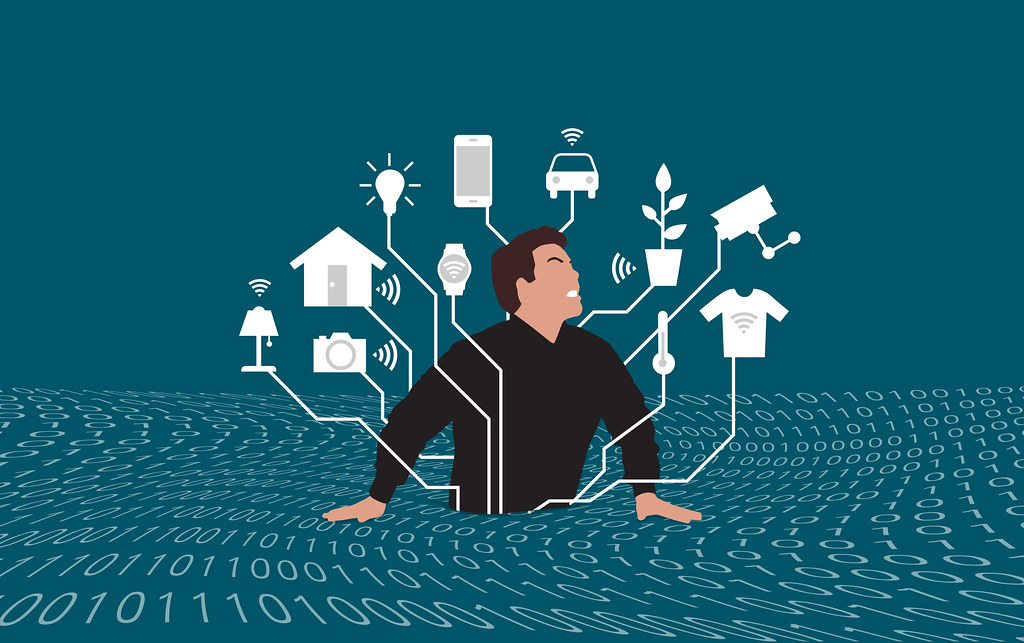Modern Progress: 9 Technologies Changing the World
Futurists of the mid-20th century believed that at the beginning of the 21st century, we will use flying cars and live side by side with intelligent robots. Many impressive predictions turned out to be erroneous, but in one thing the science fiction writers of the past were right – for half a century the world has changed beyond recognition.
For example, modern travelers don’t have to search for Enterprise DCA airport address in order to rent a car – they just may use the online services. Indeed, the Internet of 2000 would have seemed fantastic to a resident of 1985, and global smartphoneization of 2019 would have impressed a resident of 2000. Probably, by the mid-2030s, the world will change again, and this will happen thanks to the following technologies…
Voice assistants
According to analysts, over the next four years, most users in the United States of America and Western Europe will acquire home voice assistants like Amazon Echo or Apple Homepod.
Thus, the constant presence of an invisible computer assistant, which can be contacted by using a voice command, will become familiar and natural. After a couple of decades, the average user will sincerely wonder how people could live without talking to a computer.
Crispr Technology
Crispr/Cas genetic correction technology is one of the most impressive developments in modern genetic engineering. Probably, humanity is not yet fully aware of the full potential of this technology.
Crispr/Cas allows you to edit the genetic code, removing damaged or mutated elements from it and replace them with wholesome ones. Thus, the technology is able to permanently eradicate genetic diseases and physically improve a person.
Moreover, Crispr/Cas will allow scientists to create new species of living organisms. In general, this technology is really capable of radically transforming the face of the entire planet.

Robots
Boston Dynamics labs are currently developing robots that can help soldiers on the battlefield.
Knightscope Company sells specially-designed security robots that are able to work as security guards in stores or enforce traffic regulations. Thus, the Knightscope K5 model can remember up to 300 license plates of passing cars per minute. Over time, such robots will become commonplace and ubiquitous.
Augmented Reality
A few years ago it was unclear whether augmented reality would be popular in the future. Today it becomes clear – it will be! Technology giants like Apple are investing billions of dollars in augmented reality headsets and ecosystems.
While augmented reality glasses are a rare and exotic toy for the rich. However, once a smartphone could be considered such a toy. The ubiquity of augmented reality is only a matter of time. By the way, some experts are sure that this technology will force smartphones out of the market.
Regenerative medicine
It sounds like science fiction, but scientists already can produce body parts for individual orders. To start with, doctors take several cells of the desired organ and multiply them in a Petri dish. When an organ or part of an organ grows to the desired size, it’s transplanted to the patient.
There’s an alternative direction – three-dimensional printing of living organs. At the beginning of the year, scientists managed to print organs with an integrated circulatory system, which removes a lot of hardware limitations.
In general, nobody doubts that over time, regenerative medicine technologies will become cheap and affordable for almost everyone.
Unmanned vehicles
Tesla, General Motors and Volvo have already launched semi-autonomous vehicles on the market. Now the transition to full autopilot won’t take long.
For this, the main obstacle is not development difficulties, but bureaucratic restrictions. When legal issues will be finally resolved, the era of unmanned vehicles will come. Thus, in a few years we will all be able to travel by car without a driver.

Reusable rockets
Unlike unmanned vehicles, this technology won’t affect the mass user. However, its influence on the world cannot be underestimated. The use of reusable rockets reduces the cost of space launches dozens of times. This means that scientific research related to space and weightlessness will become cheaper, thereby accelerating technological progress.
What’s more, thanks to reusable rockets, humanity can seriously start talking about space tourism.
Cryptocurrencies
Several years ago, the cost of 1 bitcoin was more than $19,000. Now the price has fallen sharply, but one bitcoin is still valued at thousands of dollars. In general, cryptocurrency can be quite unstable, but nobody doubts that it’s a stable monetary unit.
It’s not just about Bitcoin. The blockchain technology on which the cryptocurrency is based is impressive. In the near future, such distributed databases can form the basis not only of cryptocurrencies, but also of banking systems or government institutions.
Artificial Intelligence and Automation
Artificial intelligence and automation can affect the face of the world in a rather unpredictable way. Obviously, machines will gradually replace people in various fields of activity.
Optimistic experts argue that this will lead to the emergence of a whole series of new professions. Pessimistic experts logically object that not everyone who has lost their jobs will be able to find new uses. Thus, in the coming decades, universal automation of labor will become the engine of very serious and unpredictable social transformations.


















